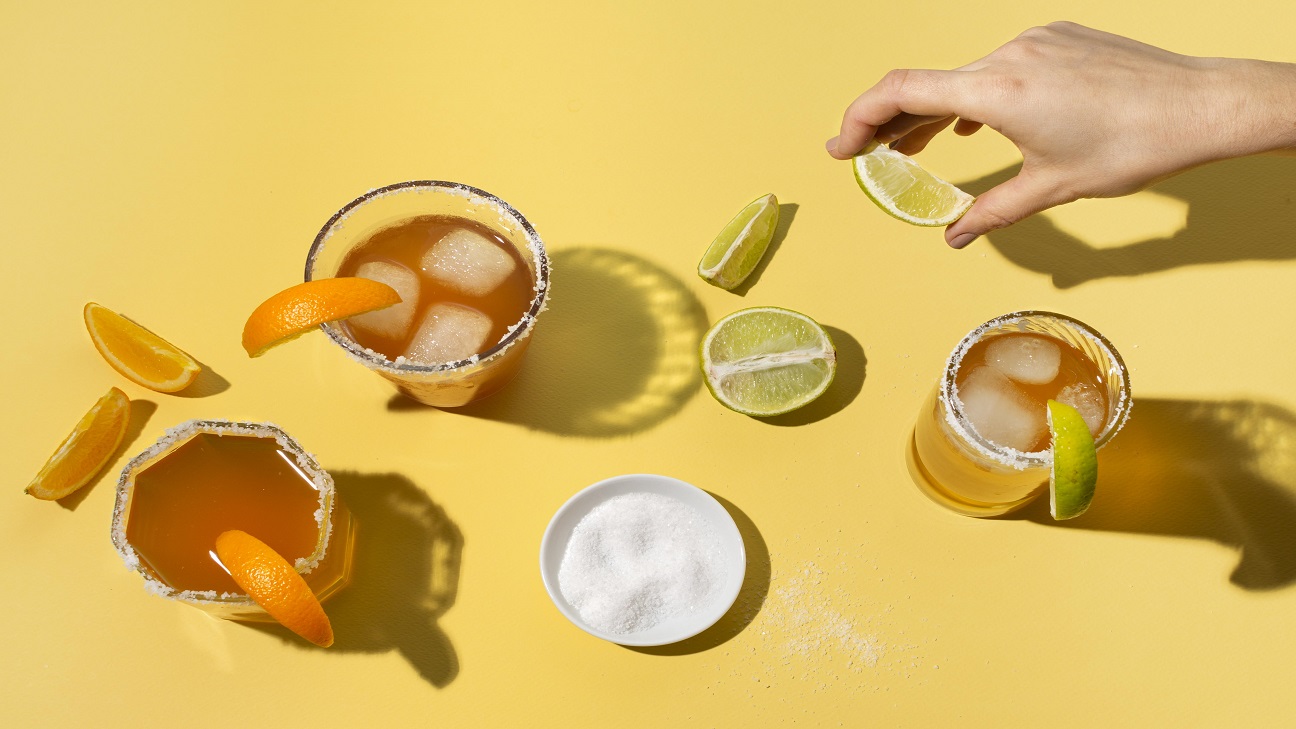Evidence Based
This article relies on solid scientific evidence, authored by experts, and thoroughly fact-checked by specialists.
Our team of licensed nutritionists and dietitians strives to maintain objectivity, impartiality, and honesty. We aim to present a fair representation of both sides of the argument.
Scientific references are included throughout this article. The numbers in parentheses (1, 2, 3) are clickable links to peer-reviewed scientific papers. These sources further support the information provided.

In the quest for healthier lifestyles, making mindful choices about our beverage consumption can have a significant impact. Recent research suggests that opting for coffee over soda could potentially enhance longevity for individuals living with type 2 diabetes. Let’s delve into the findings and explore why this shift in beverage preference can be a game-changer for those managing this metabolic condition.
One Sugary Drink Per Day Can Drastically Increase Risk of Mortality
The impact of sugary beverages on our health continues to be a growing concern (1
PubMed Central
Highly respected database from the National Institutes of Health
Go to source ). Recent research has shed light on the alarming consequences of consuming just one sugary drink per day. It appears that this seemingly innocent daily habit can significantly increase the risk of mortality and pose a grave threat to our well-being. Let’s delve into the findings and uncover the dangers associated with regular consumption of sugary drinks.
- Increased Risk of Chronic Diseases: Numerous studies have linked frequent consumption of sugary beverages with an increased risk of chronic diseases such as obesity, type 2 diabetes, cardiovascular conditions, and certain types of cancer. These conditions are major contributors to mortality rates worldwide. Regularly consuming just one sugary drink per day can exacerbate the risk of developing these life-threatening diseases.
- Weight Gain and Obesity: Sugary drinks are high in calories and provide little to no nutritional value. Regular consumption can lead to weight gain and contribute to the development of obesity. Excess weight and obesity are associated with a higher risk of mortality, as they increase the likelihood of developing other chronic diseases and impair overall health.
- Impact on Heart Health: The excessive sugar content in sugary drinks can lead to adverse effects on cardiovascular health. Regular consumption is associated with an increased risk of high blood pressure, elevated cholesterol levels, and a higher likelihood of developing heart disease. These factors significantly contribute to mortality rates related to cardiovascular conditions.
- Negative Metabolic Effects: Sugary beverages, including sodas, energy drinks, and sweetened juices, have a detrimental impact on metabolic health. They can disrupt blood sugar levels, impair insulin sensitivity, and contribute to the development of insulin resistance. These metabolic disturbances are closely linked to the development of type 2 diabetes and contribute to an increased risk of mortality.
- Dental Health Consequences: High sugar content in beverages can lead to tooth decay and dental problems, impacting overall oral health. Poor oral health has been associated with various health conditions, including cardiovascular disease, respiratory infections, and even premature mortality.
The Best of the “Healthy” Beverages
When it comes to quenching our thirst, choosing the right beverages can have a significant impact on our overall health and well-being. While water should always be our top choice for hydration, there are several other “healthy” beverages that offer a range of nutritional benefits. Let’s explore some of the best options to include in our daily routines:
- Herbal and Green Teas: Herbal teas, such as chamomile, peppermint, or ginger, are excellent choices for their soothing and calming properties. They are caffeine-free and can provide various health benefits, including improved digestion and relaxation. Green tea, on the other hand, contains antioxidants called catechins that have been associated with a reduced risk of chronic diseases, including heart disease and certain types of cancer.
- Freshly Squeezed Juices: Freshly squeezed juices, especially those made from a variety of colorful fruits and vegetables, can be a fantastic source of vitamins, minerals, and antioxidants. Citrus fruits like oranges and grapefruits provide vitamin C, while dark leafy greens like kale and spinach offer an array of essential nutrients. It’s important to note that juices should be consumed in moderation due to their natural sugar content, and it’s best to prioritize whole fruits and vegetables for their fiber content.
- Nut Milks: Nut milks, such as almond milk, cashew milk, or oat milk, have gained popularity as dairy alternatives. These plant-based options are typically lower in calories and saturated fat compared to dairy milk. They can be a suitable choice for individuals with lactose intolerance or those looking to reduce their dairy consumption. However, it’s important to choose unsweetened varieties to avoid added sugars.
- Kombucha: Kombucha is a fermented tea known for its probiotic content, which can promote a healthy gut microbiome. Probiotics support digestion, immune function, and overall well-being. However, it’s essential to select brands with minimal added sugars and to be mindful of portion sizes, as kombucha can still contain some natural sugars and carbonation.
- Coconut Water: Coconut water is a natural and refreshing beverage that provides hydration and a range of electrolytes, including potassium and magnesium. It can be a great choice for replenishing fluids after exercise or for staying hydrated on hot days. However, it’s worth noting that coconut water also contains natural sugars, so moderation is key.
- Infused Water: Infused water offers a flavorful and hydrating alternative to plain water. By adding slices of fruits, herbs, or vegetables to your water, you can infuse it with refreshing flavors while adding a hint of vitamins and minerals. Popular combinations include lemon and mint, cucumber and basil, or strawberry and basil.
Conclusion
The choices we make regarding our beverage consumption can have a significant impact on our health, particularly for individuals living with type 2 diabetes. Opting for coffee over sugary drinks has been shown to potentially enhance longevity for those managing this metabolic condition. The dangers associated with regular consumption of sugary beverages, such as increased risk of chronic diseases, weight gain, adverse effects on heart health, negative metabolic effects, and dental health consequences, highlight the importance of making mindful choices.
When it comes to selecting healthier beverage options, water should always be the top choice for hydration. However, there are several other “healthy” beverages that offer nutritional benefits. Herbal and green teas provide soothing properties and antioxidants, while freshly squeezed juices can be a source of vitamins and minerals when consumed in moderation. Nut milks offer a dairy alternative, and kombucha provides probiotics for a healthy gut. Coconut water is a natural and hydrating option, and infused water adds flavor and hydration with the addition of fruits, herbs, or vegetables.
By being mindful of our beverage choices and opting for healthier alternatives, we can support our overall health and well-being. However, it’s important to remember that moderation is key, even with these healthier options, and individual preferences and dietary needs should always be taken into account. Consulting with a healthcare professional or registered dietitian can provide personalized guidance for managing type 2 diabetes and making informed beverage choices.




